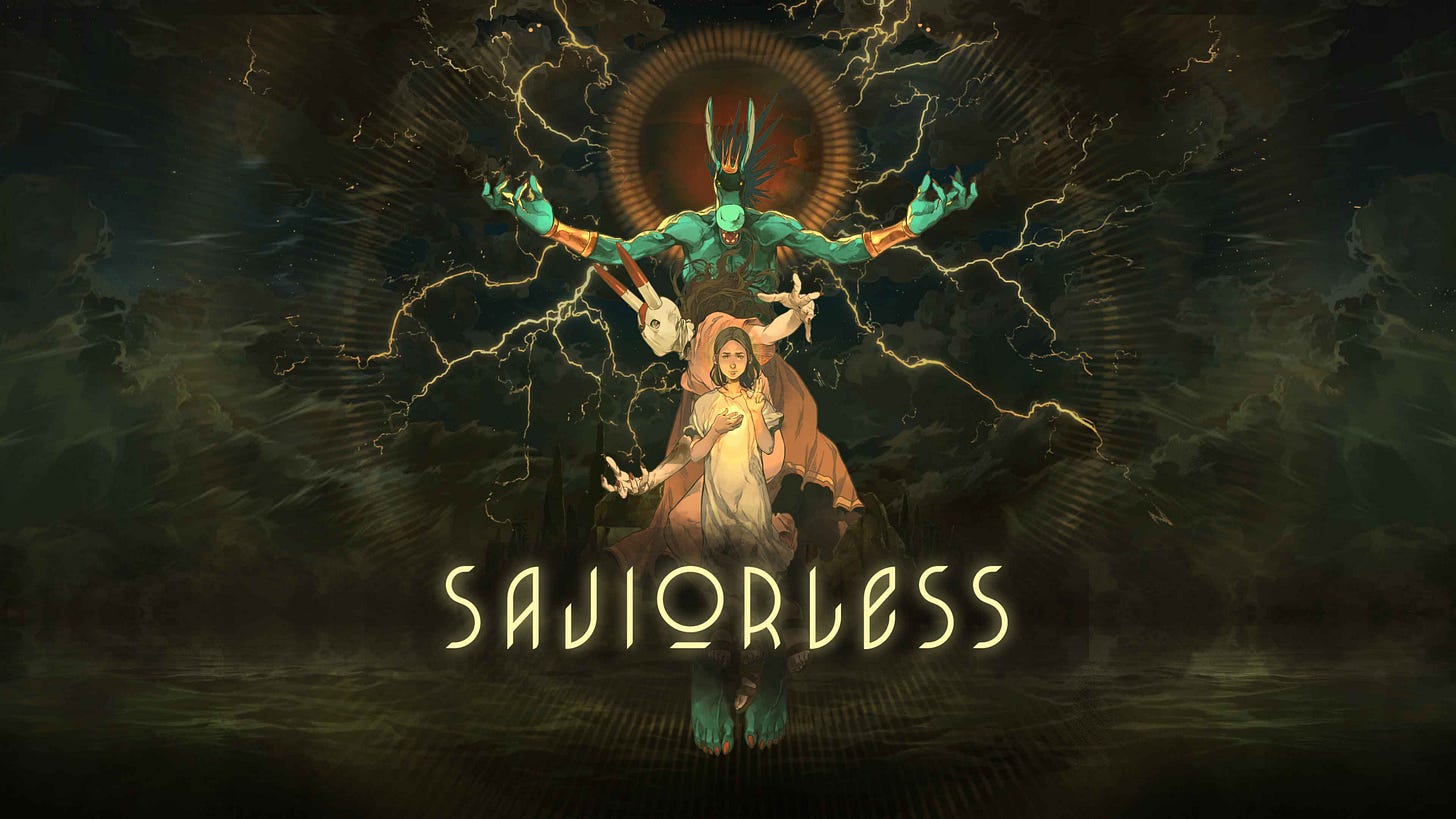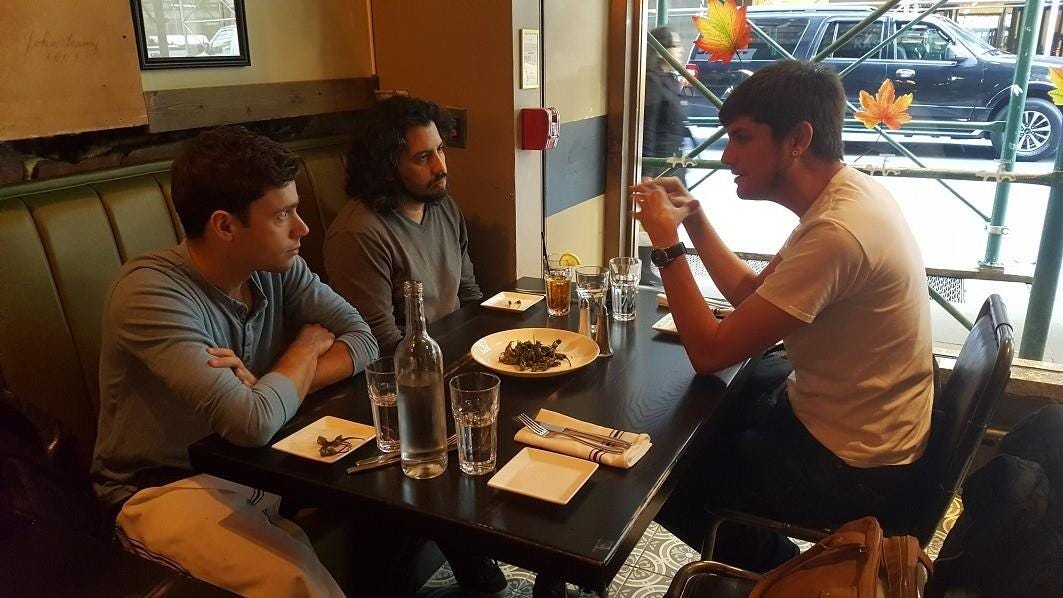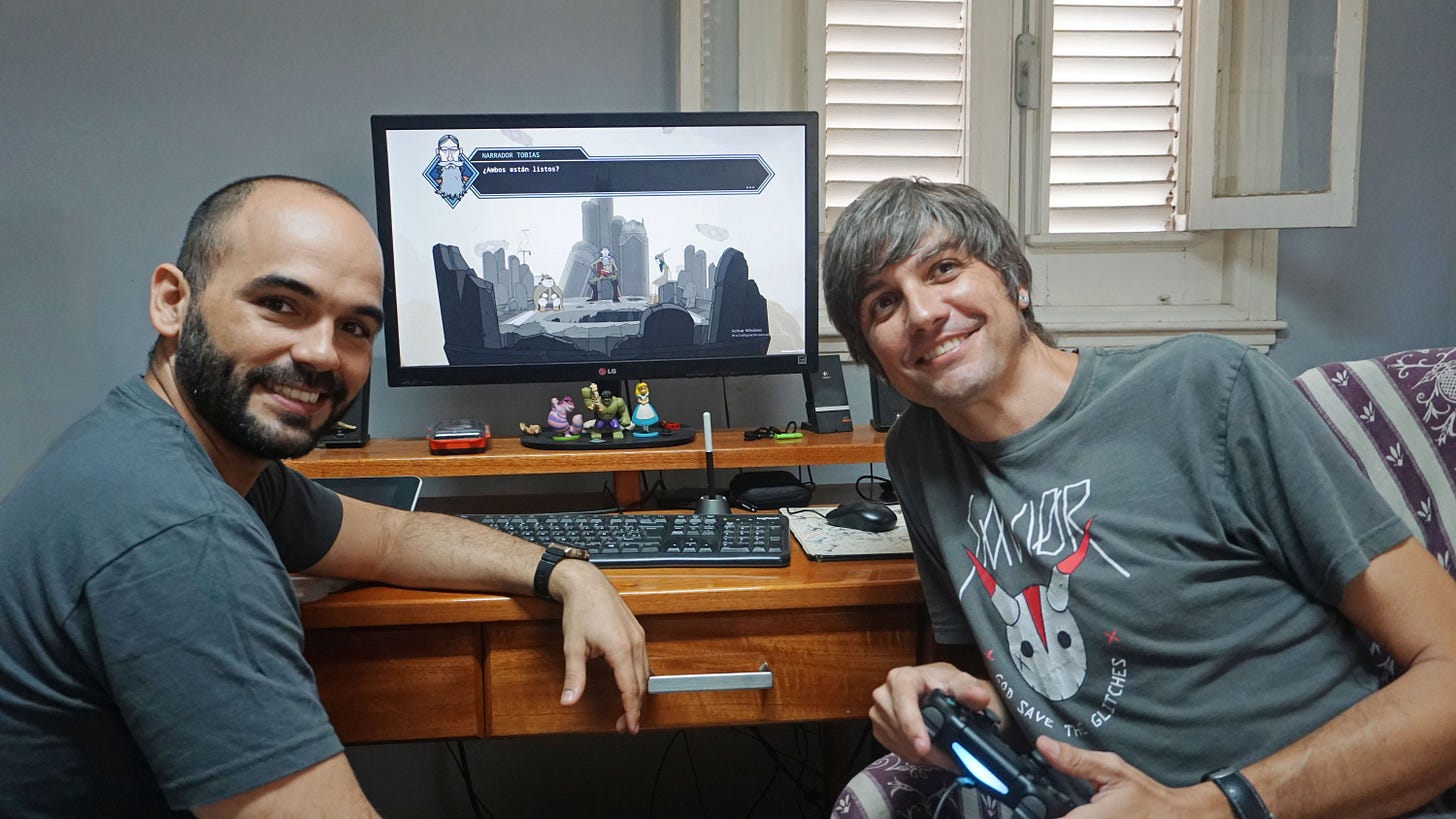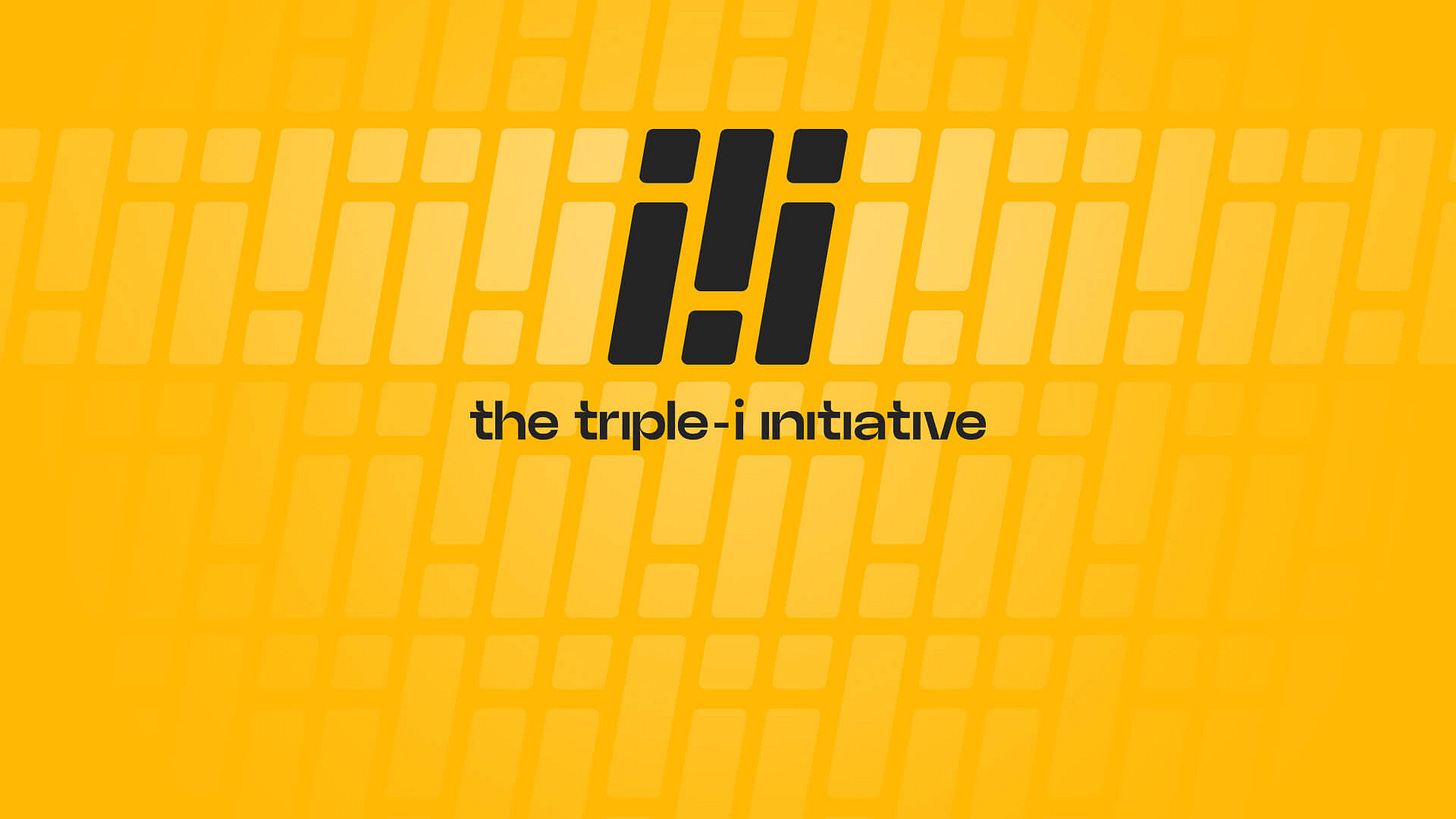Game development in the time of a Cuban crisis
Josuhe Pagliery has been methodically working away on his game in Cuba for eight years, it's out this month
For a while, things looked very, very bad for Cuba's first modern indie video game.
Exploding onto the scene nearly nine years ago with coverage from newspapers, magazines, websites, and radio worldwide, Savior was an early-in-development game driven by the passion of a two-person team working in the shadow of the Cuban government.
Briefly, the hand-drawn indie game looked like it would help usher in a new age of game development in Cuba—perhaps even fueling interest within the government of officially sanctioned titles and financial support in the slowly budding industry there.
But then everything seemed to simply fall apart.
Half of the two-person team making the game unexpectedly left the project, the American Embassy in Cuba shut down over still mysterious sonic attacks, and the Innovadores Foundation—which connected Cuban innovators with global entrepreneurs—was expelled from the island.
Then came COVID, the supply shortages, social unrest, and the sometimes days-long rolling blackouts.
Savior's moment in the sun slowly faded. Another game took its name. People outside of Cuba seemed to forget about the piece of interactive art.
But Josuhe Pagliery never stopped believing, hoping, working to turn his ideas and art into something people can play outside of Cuba.
On April 2, despite expectations, Saviorless lands in a game industry that has perhaps forgotten about it, ready to prove that Cuba can deliver meaningful video games.
History
Last month, I was wandering the stalls of Paddington Market in the suburbs of Sydney, Australia, when a message from Discord popped up on my phone.
Pagliery was reaching out to tell me that after about nine years of "non-stop work and struggles," his game was finally coming out.
"It feels kind of surreal," he wrote, adding that bringing it not just to PC by consoles is something that "even in our wildest dreams we never thought would happen.
"Are you still interested in that follow-up that we talked about two years ago?"
I've followed Pagliery and his work since we met over launch in a tiny New York City restaurant near Grand Central Station in 2016. At the time, he told me that he wanted Savior to be the first example of a successful video game for independent developers in Cuba.
"Something that might give other developers hope and encouragement, and make them think: 'If they could finish Savior and succeed in the midst of all these difficulties, then maybe we can do it too.'"
At the time, he had raised about $12,000 through an Indiegogo campaign and was in the U.S. during a period when Cuban-American relations seemed to be at their peak.
His story so enthralled me that I decided to travel to the country for a week in 2017 to examine the culture of video games and game development. The resulting, award-winning 12-part series on video games in Cuba included a piece about Pagliery and his small studio's struggles.
In 2017, I met with Pagliery at the home of Johann Hernandez, the programmer working on the game. Beyond the gates of the home, past the rusting frame of an unidentifiable car, the two showed off the skeleton of the game, laid bare on a back dining room table.
Reflecting on his visit to the U.S. the previous year, Pagliery tells me that it was difficult for him to step out of the limelight of that whirlwind press tour and back into the shadows of underground game development in Cuba. It was, he said, like none of it had happened.
"And that is kind of discouraging, but at the same time, when you're first, you have to deal with that kind of thing all the time. You have to open the path for other people to come later."
He said that the game would be wrapped up by 2018.
In 2022, I checked out a demo for the game, which seemed on the cusp of release.
Now, in 2024, it's finally done, and Pagliery is ready to talk about his art, island country, and journey.
The Journey
It's been about seven years since I chatted with Pagliery in Cuba about his studio—Empty Head Games— and the game, which he said at the time was nearly done.
So, what caused the delay?
Inexperience and some bad luck, Pagliery said. But I think he's not giving life in Cuba and life in general enough of the blame.
His first mistake, he said, was deciding to complete the full game in one go instead of trying to release a small demo and then expand it into a game. That was exacerbated by his partner, Johann Hernandez, suddenly leaving the project for personal reasons, followed by a series of unexpected events.
"Almost immediately, the American Embassy closed due to the sonic attacks, and just after that, the expulsion of Innovadores Foundation from the island; in short, everything was going very bad," Pagliery said.
Fortunately, he quickly found a new programmer in David Darias, a Computer Science graduate. The two scrapped everything that had been done previously and—in total seclusion—started working on the first of three demos, each meant to illustrate the completely different mechanics of the new take on Savior.
"It was the equivalent effort of developing three small games, financed by then with our savings," he said. "Around that time, we received a final blow: an independent studio from Portland, Oregon—Starsoft—registered Savior as the name of their new video game."
Pagliery said he and Darias were struggling to find a publisher willing to take on a Cuban game, and changing the title to Saviorless felt like a possible end to the game, but then something amazing happened.
"We were thinking about closing the project as a large free demo when we received an unexpected email from Plugin Digital," he said. "To this day, we find it incredible that Plugin Digital aligned with our vision for the project and trusted that two first-time guys in a remote country would finish a game like Saviorless."
With the backing of the publisher and distributor, the two decided to expand the game from a two-hour title to triple the length.
"We assumed, against all logic, that this would not negatively impact the agreed-upon deliverables," Pagliery said. "It was when we started to incorporate the visual parts that we realized the true dimension of our mistake, adding almost another year to the two originally planned.
"And let's not forget that all these circumstances were also happening in the context of blackouts (in 2022 they reached up to 78 hours in a row), COVID-19, shortages, social unrest, departure of workers from the country, and the happy birth of my son Renato. Adding all this up, we arrived at the year 2024."
Saviorless
Savior's rebirth as Saviorless is not simply a name change; it brings what Pagliery describes as a complete overhaul.
"The game has become much more visual and also more narrative," he said. "I think these were the two elements that set the guidelines for accommodating all the gameplay and mechanics. I am very proud of the game's narrative structure and how it translates into the gameplay experience."
In action, Saviorless plays like a side-scrolling 2D platformer. The game opens with players taking on the role of Antar, a child aspiring to become the game's Savior as he journeys to and through the forbidden Smiling Islands. The game's hand-drawn art and intriguing plot are helped by the ability to play as three very different protagonists.
Where Antar is focused on puzzle-solving and exploration, the child's masked avatar, Savior, and the hunter, Nento, focus more on combat.
While the game's original story has also changed drastically, the underlying themes that explore Cuban culture, philosophy, and politics remain. However, Pagliery declined to discuss the game's deeper meanings, saying he'd prefer each player come up with their interpretations.
"I think inside the game, the player has all the elements to deconstruct or interpret their analogies and conclusions," he said. "A work of art, wherever the medium is, has its own life and meaning, even over the creator's design, so I choose to let it be, allowing everyone to bring their conclusions. All the elements are there to look at, obvious or not; at the end of the day, it is the player who will decide what this story means to them."
Cuban game development
With the game on the cusp of launching, Pagliery took a moment to reflect on whether the state of game development in Cuba has evolved or changed over the past eight years.
Pagliery said that, on some level, he feels the state of game development in the country remains static.
"Cuba has many talented game developers, but they still face significant challenges in creating impactful content," he said. "These struggles prevent them from standing out in the increasingly competitive game industry, where long-term development and commitment are often necessary for success."
He said that most Cuban video games remain small projects, but the community is full of talent and passion. "The Cuban Video Game Creators community is one of the most active groups, and on their site, you can find many of the most relevant Cuban video games. Sadly, I don't think the ideal conditions exist in Cuba today to make competitive games internationally. Still, it wouldn't surprise me if that situation could significantly improve in the upcoming years.
"I have always believed that indie development in our country needs a title that achieves international success. Generating, even if only as an indirect reference, a more hopeful horizon for any developer on the island who comes after. If that game turns out to be Saviorless, it would be an honor for me, but if not, I still think we would be missing that standard that finally places Cuba in the international context."
The years have also given Pagliery time to reflect on his early fame and its connection to Cuban game development.
"The experience I had in 2016 was certainly incredible, but, in retrospect, also somewhat undeserved," he said. "In that very benevolent context, any Cuban developer who had been in my place would probably have been just as successful. You were there to see it yourself, we didn't even have a decent demo, and we were giving interviews to fucking Rolling Stone. In the campaign, we did even better. On the second day, we were trending, and we reached the target in just six days. It was crazy how fast all these things were happening, and there we were: in the right place, at the right time.
"I remember that while in NY, I received emails from American developers asking me how I had achieved so much exposure and success. And, of course, all that had a cost in the immediate future because, in a way, it felt like we had already made it without actually having done anything to deserve it. And you know what they say, 'The higher you rise, the harder the fall will be,' and ours was a big one, I assure you, almost like waking up from a dream you shouldn't have woken up from."
Deserved or not, Pagliery’s waking dream of game development fame led to both a level of support outside of Cuba, but a lot of attention inside the country from other game makers.
"Most of them support us, and some criticize us, but it is an undeniable reality that our game has reached a point that no Cuban video game has ever reached before," he said. "No matter the end of our story—even if the release of the game is canceled at the last minute—Saviorless has taken the flag of Cuban independent development from a past plagued by defeats and discouragement and has carried it independently to a future of possibilities. Now we are finally in the world, we are finally where things happen, where small dreams, with a little luck, become gigantic. How could anyone interested in developing video games in Cuba look at Saviorless and not feel hopeful?"
You can pick up Saviorless on the Epic Games Store, PlayStation, Xbox, and Nintendo Switch today.
Elsewhere
Frostpunk 2 Exclusive Interview: Leave your fingerprint on a frozen world
The Triple-I Initiative: A video game showcase from the people behind your favorite indies
The next big thing in role-playing will be powered by Pragma










How come I never even knew about this game?! It looks gorgeous! Just now giving this a read.